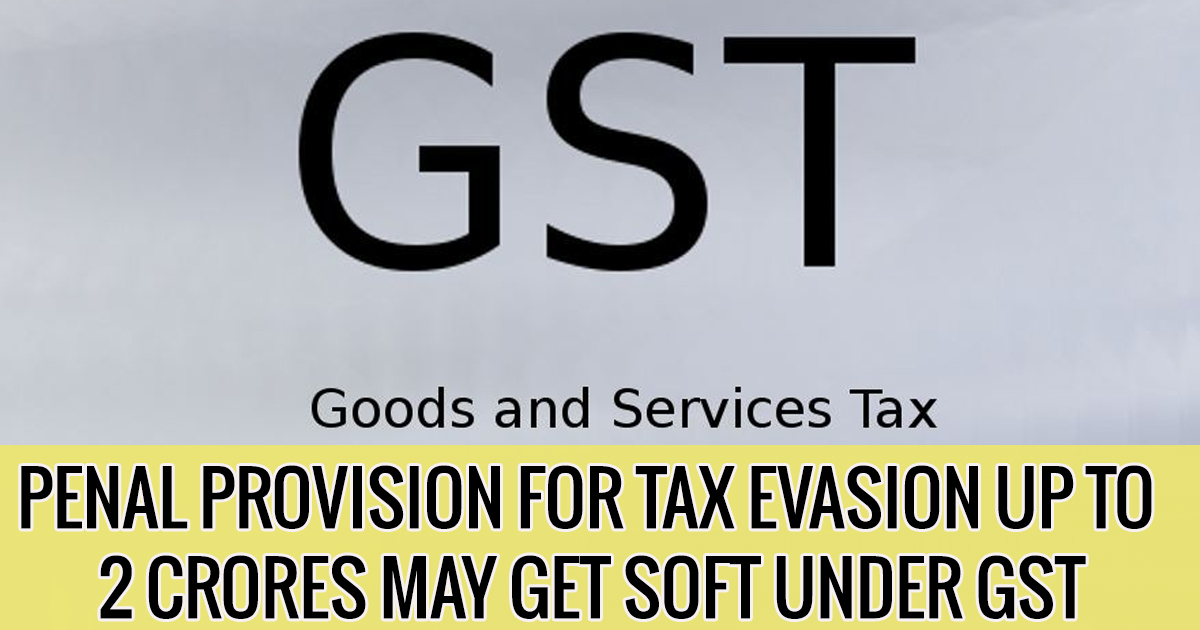GST will be soft even in the cases of criminal activity within the premise of tax collection. As per from the sources, the authority is discussing about provision which can give some relaxation to the dealers or any business units if it’s found guilty of not repaying tax or providing false information and in order to make GST administration less burdensome, the Center and states have chosen to dilute the penal arrangements to guarantee that a dealer gets quick bail if the affirmed tax avoidance is dependent upon Rs. 2 crore.
The GST Council, at its last meeting, has chosen that the arrangement of capture will be limited to falsification and non-store of gathered taxes with the exchequer inside the stipulated time span. An official mentioned that “In the case of offenses where the amount does not exceed Rs. 2 crores, the person arrested for violation of GST laws will be entitled to bail.”
However, the Central goods and service tax Act has cleared that in the case of taxation in goods and service tax where the amount of the tax evaded or the tax amount of input tax credit availed with wrong intent or when the amount of refund taken with unfair means crosses the limit of INR 5 crore in whole will be considered an cognizable and a non-bailable offence. The offense will attract an immediate arrest by the police teams without having any warrant in possession. The offense has been listed in the 223 page long FAQs released on the official website of CBEC department where it has clearly stated that excessing the INR 5 crore tax evasion limit will be a deliberate act of offense and will not serve any bail to the offender.
Recommended: Levy and Collection of CGST and SGST
Under the IPC 1860, fraud and deceiving are non-bailable offense, which implies that bail must be conceded by a court. Most different offenses like benefiting from wrong input tax credit or discount and inability to outfit archives, which were prior recorded in the reexamined draft GST law for indictment, won’t prompt to capture however may pull in a just monetary penalty.
While on account of service tax, there is an arrangement of capture for non-store of the tax past Rs50 lakh with the administration, the excise law gives the Commissioner caution to summon capture arrangement on account of default.
In spite of the fact that against profiteering and indictment arrangements may go about as an obstruction for tax avoidance, these are probably going to accomplish more damage than great under GST, KPMG (India) Partner Indirect Tax Harpreet Singh said. Singh also said that “Whenever sweeping powers are given to officials with discretion and subjectivity, it is likely to result in rampant misuse of authority creating hardships for GST dealers.”
PWC Leader (roundabout tax) Pratik Jain said the capture arrangements according to the reexamined demonstrate GST law may prompt to undue provocation for brokers. “To start with, there should be lighter penal provision for offenses for at least two years as GST is a new tax regime and traders would need time to understand the law,” he added.
